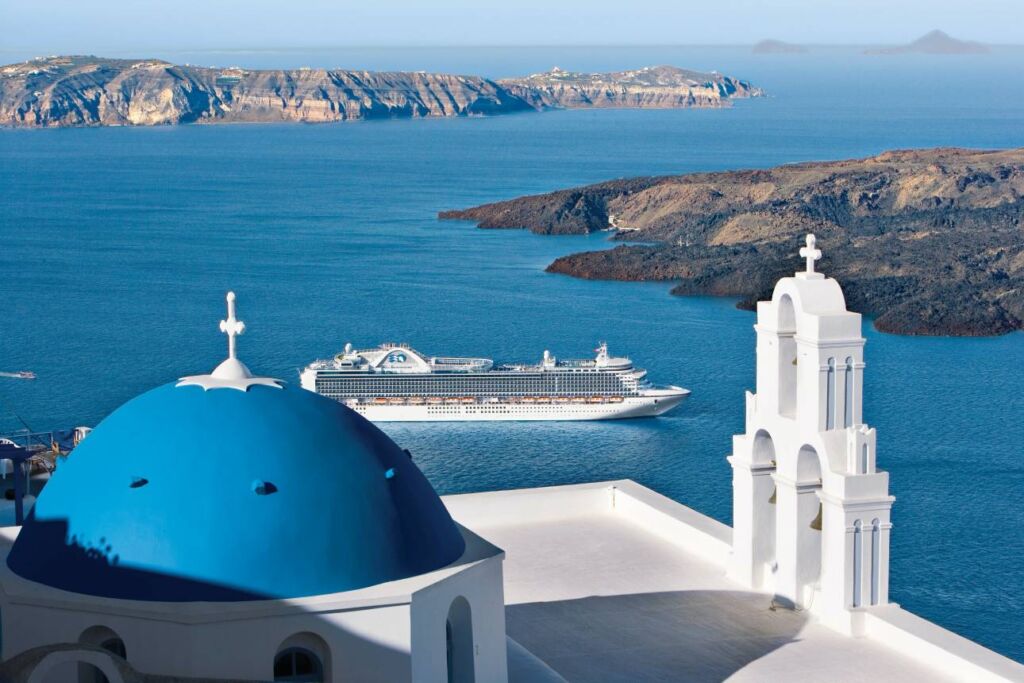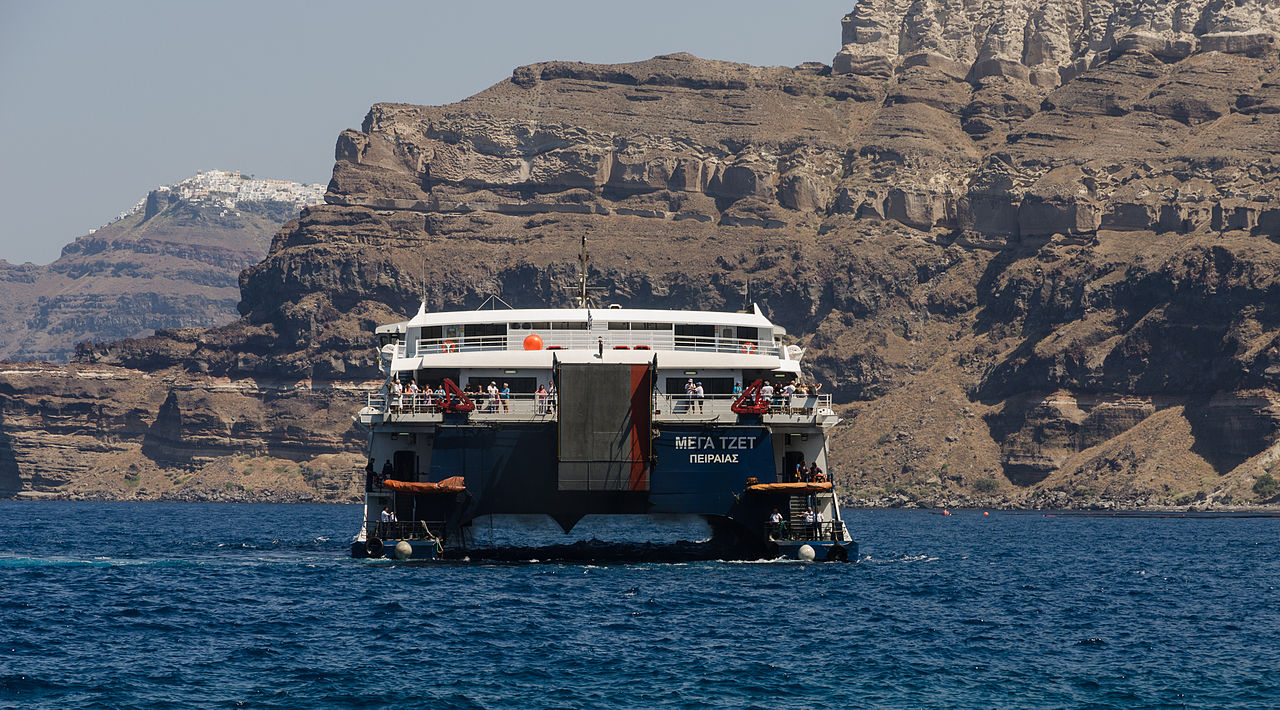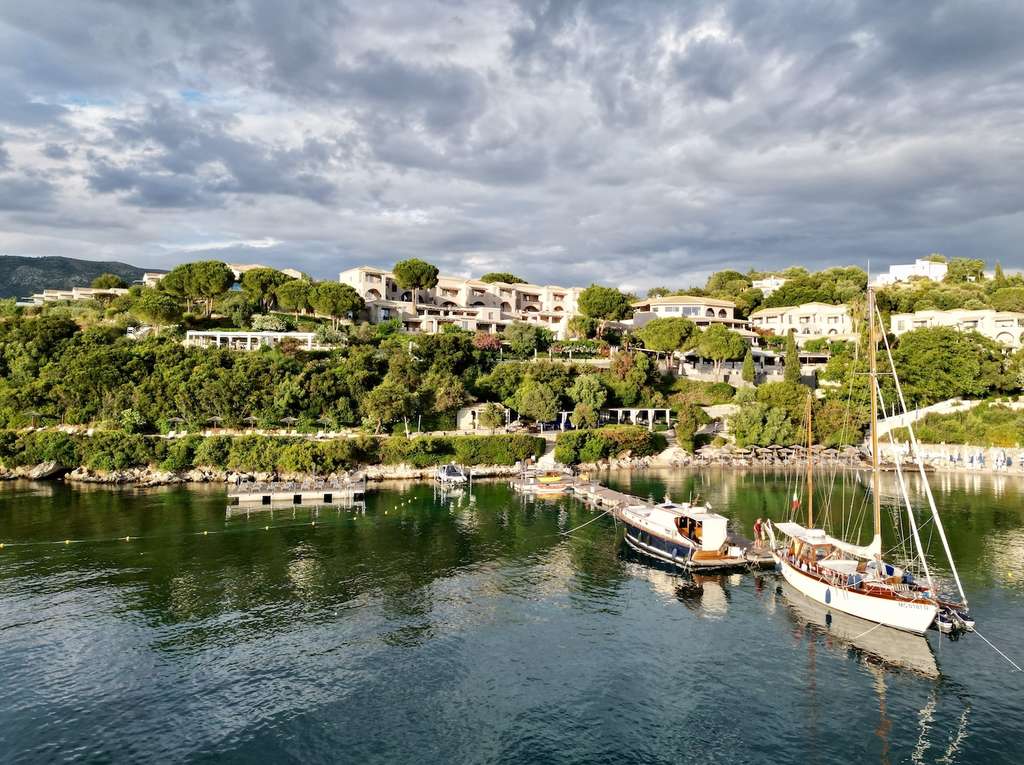Greece has taken a landmark step in tackling one of its most pressing tourism challenges: the unsustainable influx of cruise ship passengers at its most iconic island destinations. Beginning July 1, the Greek government has implemented a tiered cruise tax ranging from €4 to €20 per person, depending on the season and the port of disembarkation. The new levy is expected to reshape cruise tourism, ease pressure on fragile island ecosystems, and ensure that local communities directly benefit from the millions who visit their shores each year.
Nowhere is the strain more visible than on Mykonos and Santorini. These postcard-perfect islands have become global symbols of Greek tourism — but their popularity has come at a cost. On peak summer days, cruise ships offload thousands of passengers into towns already struggling with water shortages, traffic congestion, and overburdened waste systems. Locals have voiced increasing concern, and now the government is responding with what it calls a “necessary and fair correction.”
€20 per Passenger in Peak Summer
Under the new framework, cruise passengers disembarking at Santorini or Mykonos during the summer high season — from June 1 to September 30 — will pay €20 per person. The tax is aimed squarely at discouraging mass arrivals during the most intense travel months, particularly from mega cruise liners that contribute significantly to overcrowding.
The fee drops to €12 during the shoulder season in October, and falls further to just €4 during the off-peak winter months of November through March, when local infrastructure is under less stress.
The seasonal design isn’t just about crowd control; it’s also about fairness. By adjusting the fee in line with tourism intensity, Greece hopes to align cruise activity with sustainable capacity — and spread tourism more evenly throughout the year.
A Nationwide Shift, with Scaled Rates
The new tax isn’t limited to the Cycladic hotspots. Other ports across Greece — from Corfu to Rhodes — will also implement cruise passenger fees, though at significantly lower rates. At these less congested ports, passengers will pay a maximum of €5 during the high season, €3 in the shoulder season, and just €1 in the low season.
Officials say this tiered, geographically sensitive approach reflects the varying levels of strain that different destinations face. The goal: to protect overtouristed areas while still welcoming cruise tourism in a more controlled, thoughtful way.
Global Context: A Mediterranean Trend
Greece is not alone in its effort to regulate cruise tourism. Across the Mediterranean, cities like Venice, Barcelona, and Dubrovnik have introduced — or are debating — similar policies. Venice, for instance, has banned large cruise ships from its historic center and now charges day-trippers a fixed entry fee.
What makes Greece’s policy stand out is its data-driven flexibility. Rather than a blanket tax, it reflects both seasonality and location-specific impacts — a nuance that some tourism analysts say could make it a model for other nations facing similar pressures.
Island Communities at the Core
At the heart of this initiative is a desire to prioritize the well-being of local residents. For too long, critics argue, cruise tourism has delivered profits to global companies while leaving local infrastructure and communities to shoulder the costs. By ensuring that some of the economic benefit flows back into local services, environmental upgrades, and community projects, the new tax aims to create a more equitable system.
Tourism officials also hope the move will nudge cruise companies to rethink their itineraries — possibly shifting to smaller ships, longer stays, or alternate ports that can better handle the flow.
The Road Ahead
While it remains to be seen how cruise operators and travelers will respond, the introduction of this new levy sends a clear message: Greece is serious about sustainable tourism. By putting policy muscle behind its goals, the country is carving out a leadership role in how to manage popularity without sacrificing the very places that make it beloved.
In a summer that promises record-breaking travel once again, Greece’s move might just mark the beginning of a new chapter for cruise tourism in the Mediterranean — one where experience, preservation, and fairness go hand in hand.










